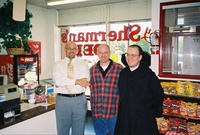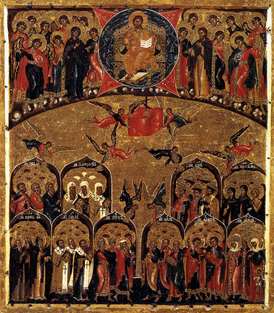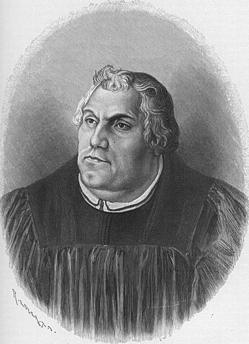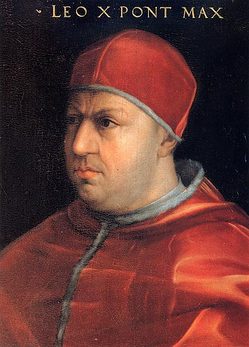To gain an indulgence, one must do three things: go to confession, do the particular penance or prayer or spiritual exercise to which the indulgence is promised, and also pray for the Pope’s intentions. An indulgence is called partial if it heals some of the after-effects of forgiven sin; an indulgence is called plenary if there is no real attachment to sin and a full conversion toward God. As important as the external practice of penance is, the Catechism itself teaches that indulgences are only means to an end: that is, metanoia or conversion of heart (CCC 1430). So there is nothing mechanical or legalistic about Catholic teaching or practice in granting indulgences for prayer, penance, and works of charity.
At this time of the year in particular, the Church calls upon us to be mindful of the holy souls in purgatory. To help us do this, there are special indulgences for the faithful departed during the next week.
On All Souls’ Day, which is on Nov. 2. On
All Souls, we are encouraged to gain a
plenary indulgence for the holy souls in purgatory. To do this, on All Souls’ Day, simply visit a church or public oratory and recite the Our Father and the Creed for the holy souls plus any prayer you wish for the Pope’s intentions. Then be sure to go to confession and to receive Holy Communion within a week. You may also gain a plenary indulgence from
Nov. 1 to Nov. 8 if you visit a cemetery and pray for the holy souls in purgatory.
Why is this important? Aren’t the deceased who have died in the love of God in God’s hands? What more remains to be done? Well, the need for purgatory is based on the same truth as indulgences: there are lingering imperfections in us even when we are essentially right with God. The holy souls who have departed this life are justified by the Precious Blood of Jesus and therefore assured of salvation; and yet, they have lingering imperfections. The purifying pains they feel are not those of a torture chamber but of being delayed in their union with God whom they love above all things. In this life, we can do penance and almsgiving after we repent; the holy souls are no longer in a position to do those active works of penance. So the theologians have coined the term satispassion for their experience in purgatory: that is, the souls in purgatory experience a passive purification in the encounter with God’s perfect holiness.
Because the holy souls are no longer able to make new choices or do active penances, they have great need of our prayers and penances and Masses, offered on their behalf. These assist the souls in their final transformation that will make them fit to enjoy the Beatific Vision of God himself. These sanctified souls will in turn remember us and intercede for us before God when they have entered into heaven. Indulgences gained and offered on behalf of the faithful departed are simply an especially effective form of prayer for the dead; there is nothing “automatic” about indulgences for the faithful departed. Even though the Church’s power of the keys does not extend to those who have died, yet the bond of charity and mutual intercession endures even beyond death.
Now on this very date, the 31st of October 1517, four hundred and ninety-three years ago, a German monk started a theological earthquake about indulgences that shattered the unity of Western Christendom. That monk’s name was Father Martin Luther. He suffered from terrible scruples, and especially from a paralyzing fear whenever he considered God’s justice and infinite holiness. In the depth of this spiritual crisis, Father Martin Luther came to the realization that our justification–that is, being put in a right relation with God–is a pure gift of grace that comes by self-surrendering faith in the Cross of Christ.
How tragic that Luther’s personal realization of a central Christian truth led to that destructive revolution known as the Protestant Reformation! After all, countless saints have come to the same realization, and led them to build up the Body of Christ with their holiness. St. Thérèse of Lisieux expressed that very truth so beautifully when she wrote:
After earth’s Exile, I hope to go and enjoy You in the Fatherland, but I do not want to lay up merits for heaven. I want to work for Your Love alone with the one purpose of pleasing You, consoling Your Sacred Heart, and saving souls who will love You eternally.
In the evening of this life, I shall appear before You with empty hands, for I do not ask You, Lord, to count my works. All our justice is stained in Your eyes. I wish, then, to be clothed in Your own Justice and to receive from Your Love the eternal possession of Yourself. I want no other Throne, no other Crown but You, my Beloved!
However, Martin Luther’s was the sort of man who can see one Christian truth clearly and other truths not at all. Soon he began to make the heretical claim that indulgences and belief in purgatory amounted to a denial of the grace of Christ, and finally incurred excommunication for his stubborn errors. Before he reached that point of no return, however, Luther wrote these touching words in a letter to Pope Leo X:




